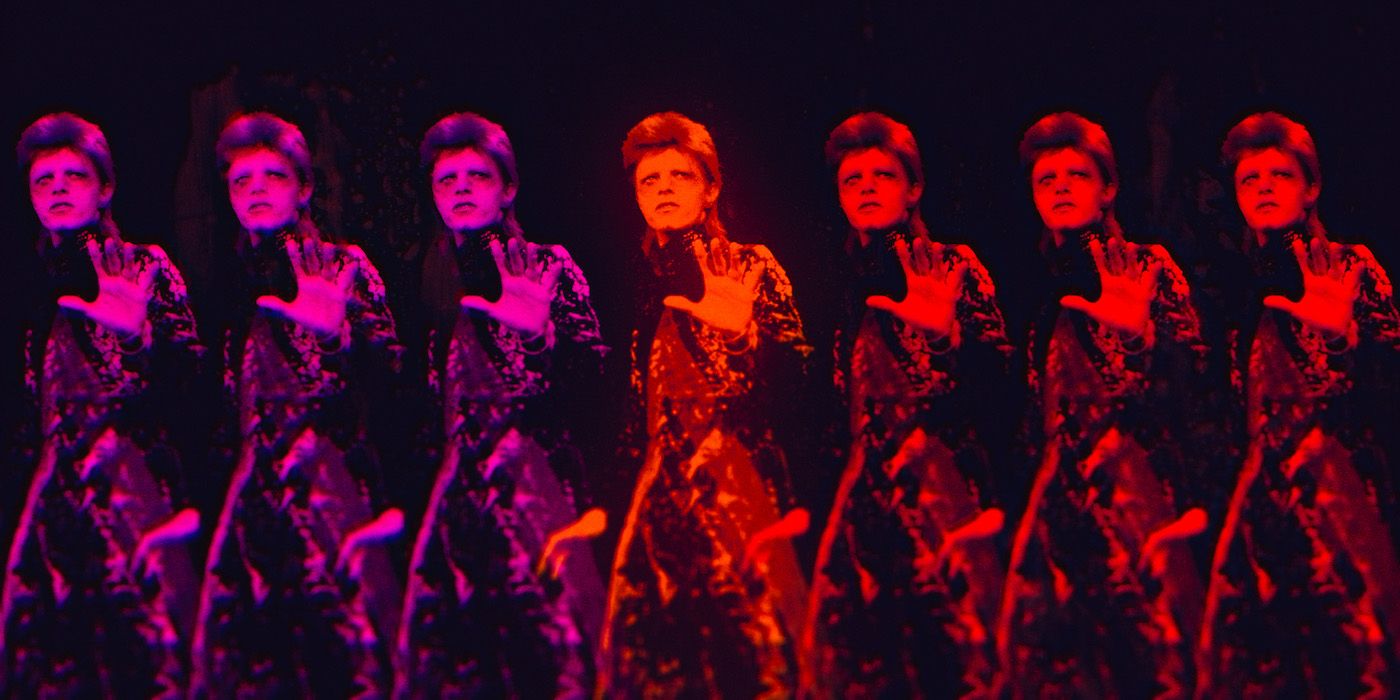Among the countless eras and changes in David Bowie's life and career chronicled in Moonage Daydream, the artist's final years are a monumentally important period left mostly untouched. Brett Morgen's recent documentary offers fans and newcomers alike a fluid, dreamlike odyssey through an enormous trove of rare footage featuring the iconic rockstar. However, by largely overlooking the pivotal crossroads at which Bowie found himself in his twilight years, the film misses out on the unprecedented coup de grâce that brought the artist's entire legacy full circle.
SCREENRANT VIDEO OF THE DAY
Since a meteoric rise to fame in the late 60s with the now-classic psychedelic folk of "Space Oddity," David Bowie's life as an artist has been one constantly marked by dramatic transformations in his look, sound, and style. Whether one knows him best for the genre-hopping art-rock of the 70s, ethereal dance-pop of the 80s, or David Bowie's numerous unforgettable movie roles, the "Ziggy Stardust" seen over any stretch of years could often appear and sound nearly unrecognizable compared to another. Still creating new music until his death from liver cancer in 2016, Bowie never stopped evolving over the half-century of his career, a truth Moonage Daydream indeed showcases in abundance over its 134-minute runtime.
By contrast, the documentary spends almost no time detailing the era that saw Bowie bookend his career with one truly unprecedented masterstroke: mounting a comeback to consciously incorporate his own death into his art. After a decade spent away from music, 2013's The Next Day and 2016's Blackstar were two albums that overtly revisited themes, songs, and even characters from past Bowie projects one last time. Upon Bowie's succumbing to cancer two days after Blackstar's release (a cancer he had kept largely secret from the public), the world was immediately allowed to understand the gravity of the album's preoccupations with death and legacy.
By Overlooking Blackstar, The Documentary Misses A Perfect Ending

The creative journey undergone by David Bowie in his final years bore unique treasures that few artists are ever afforded the chance to offer. In one particularly tragic glimpse, HBO's David Bowie: The Last Five Years reveals Bowie recorded his vocal take for Blackstar's single "Lazarus" on the very same day he learned his cancer would be terminal, causing him to gasp anxiously throughout the recording. The rare perspective one can only achieve from impending mortality is something Bowie then harnessed, even returning to famous characters like "Space Oddity's" Major Tom and Thomas Jerome Newton of The Man Who Fell To Earth within the album cycle to impressionistically muse on what his career would leave behind.
Given that Moonage Daydream only ended up incorporating a few select shots from the music videos of "Blackstar" and "Lazarus" in lieu of relaying any underlying context, it's worth considering that the film may simply have lacked the remaining runtime to cover this period in due detail. After all, David Bowie was effectively a double-digit sum of artistic icons rolled into one, and the documentary has no shortage of phases, works, and dimensions to capture with justice. Either way, few artists in human history have ever met the unique opportunity to so perfectly capstone such a prodigious career right from death's door, and David Bowie's final projects are worth remembering as an integral ending to his story.
